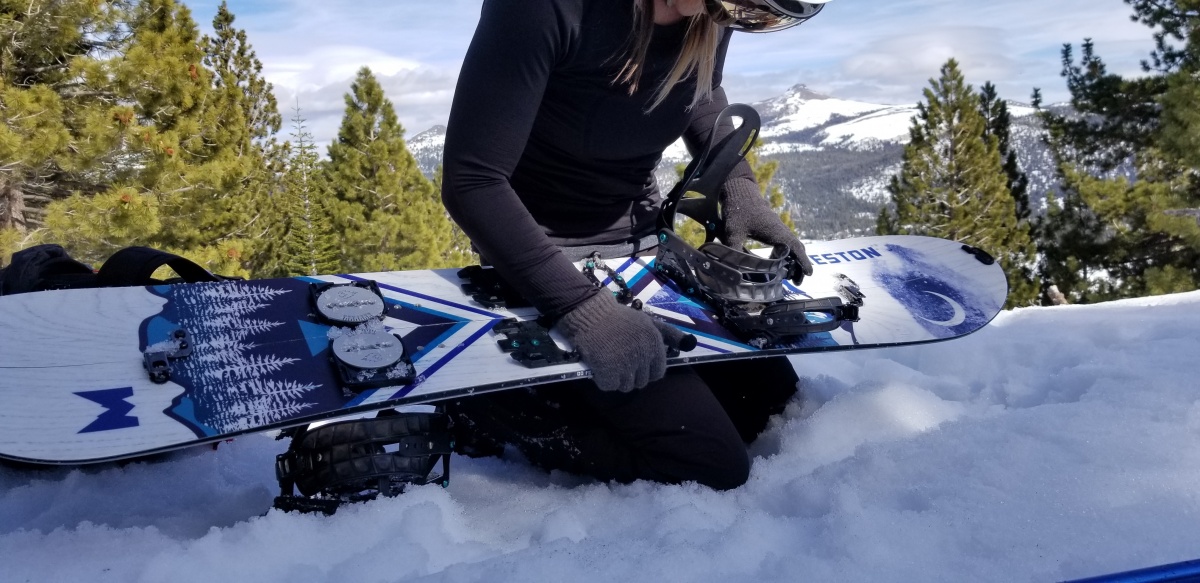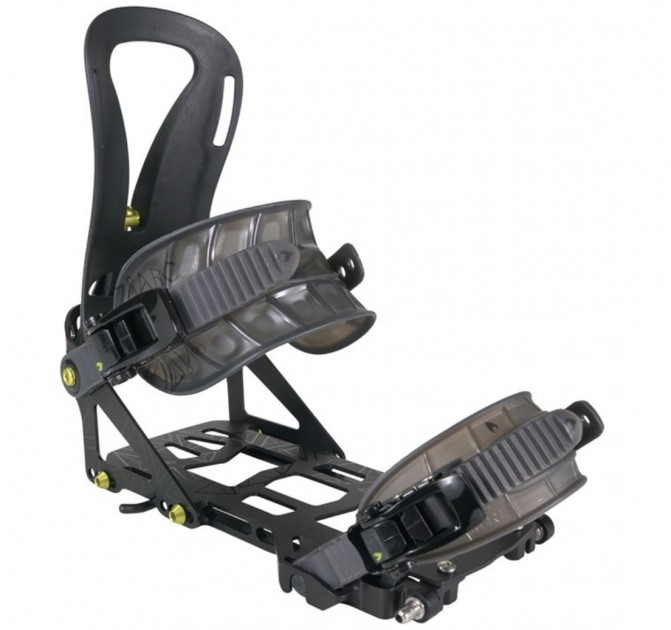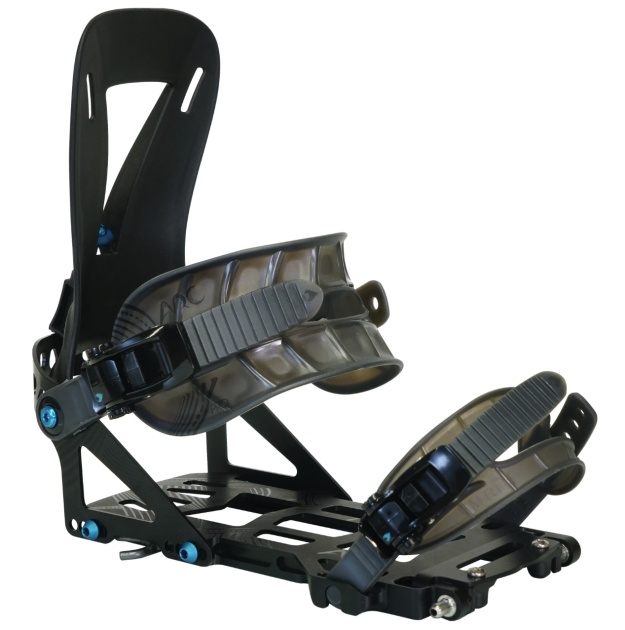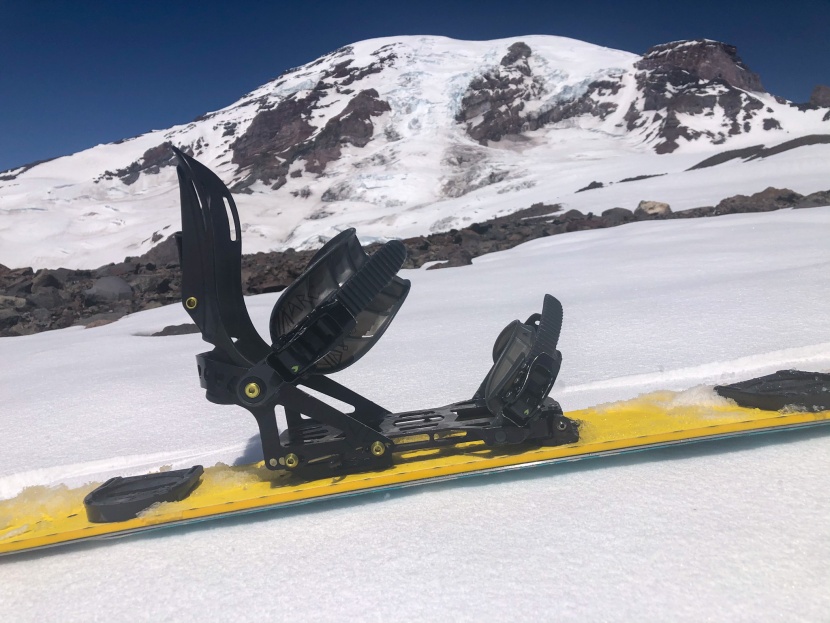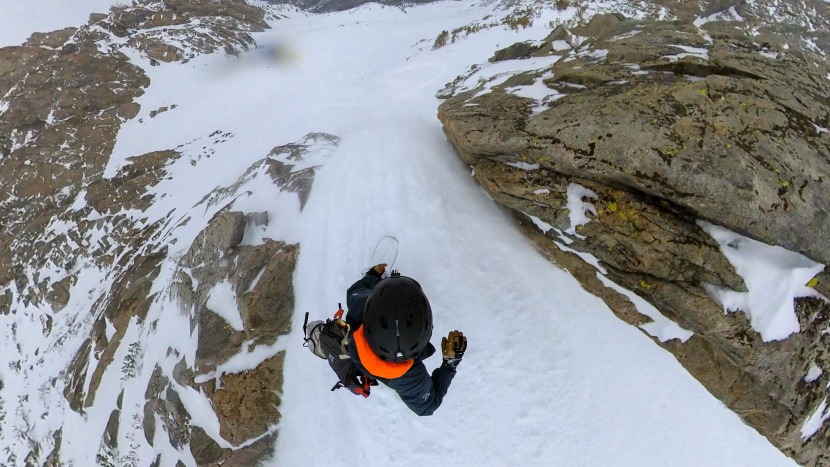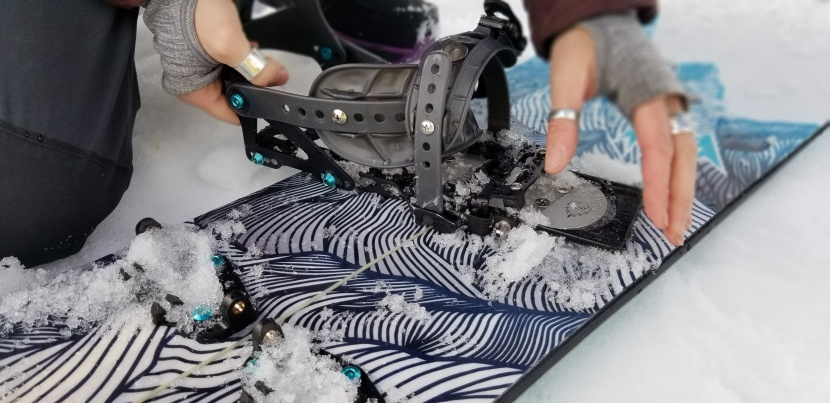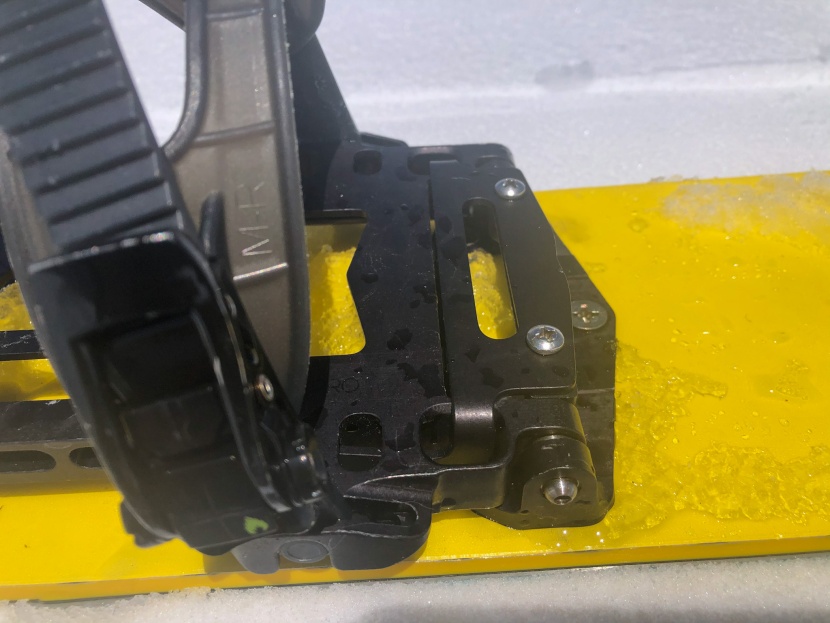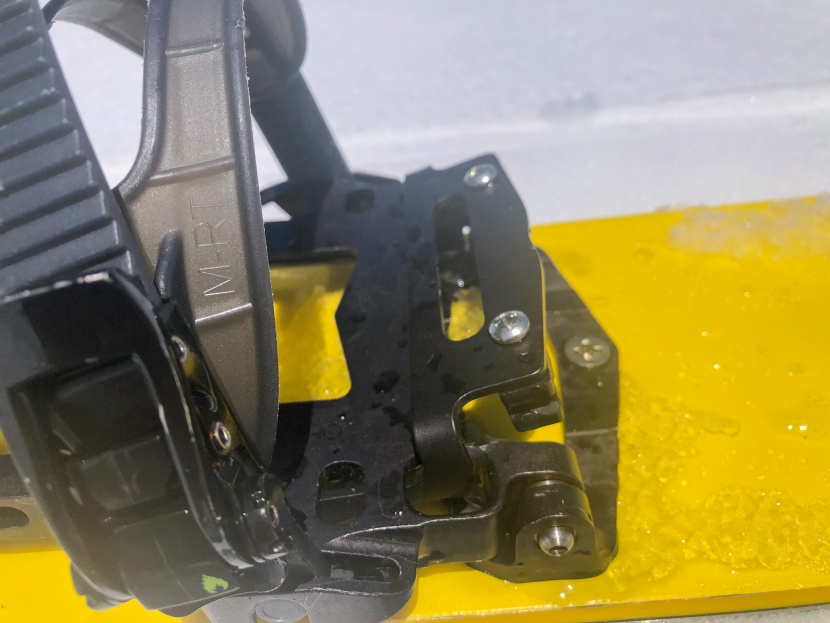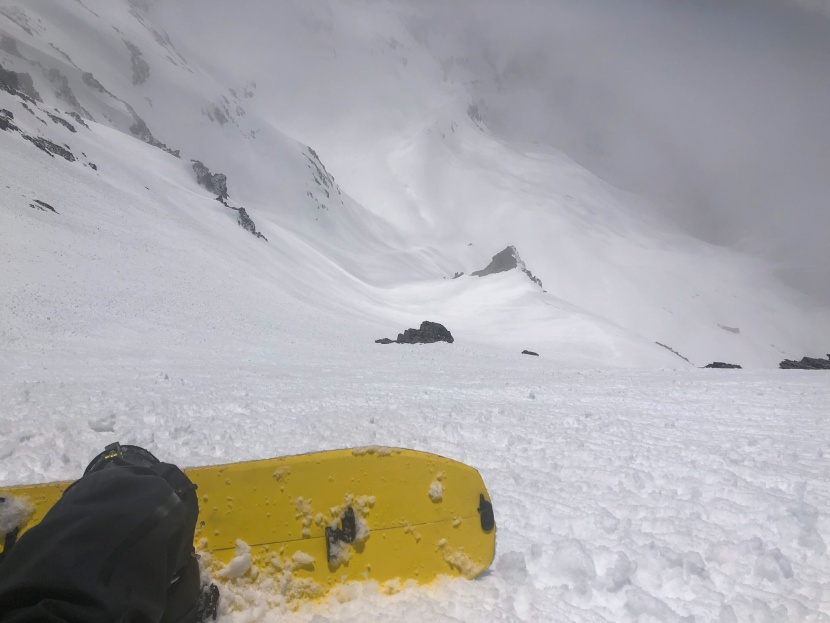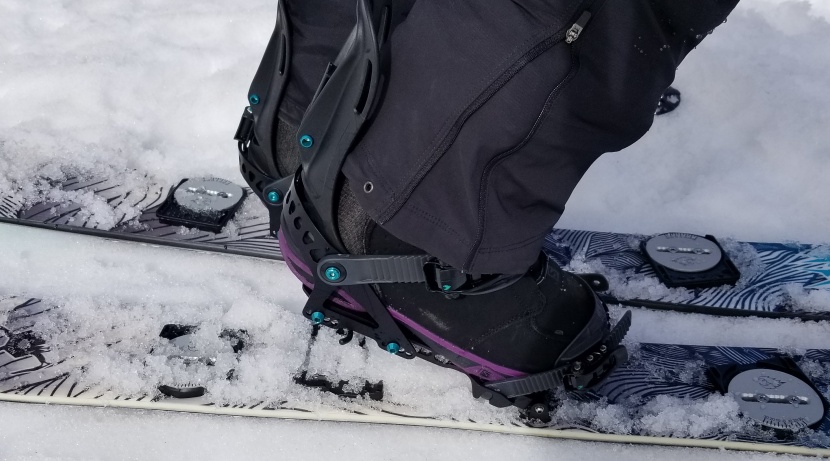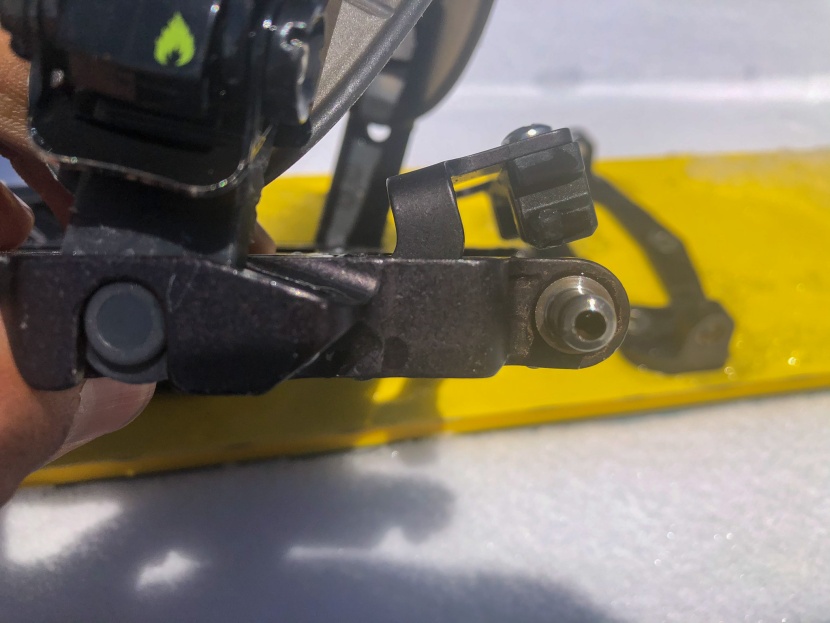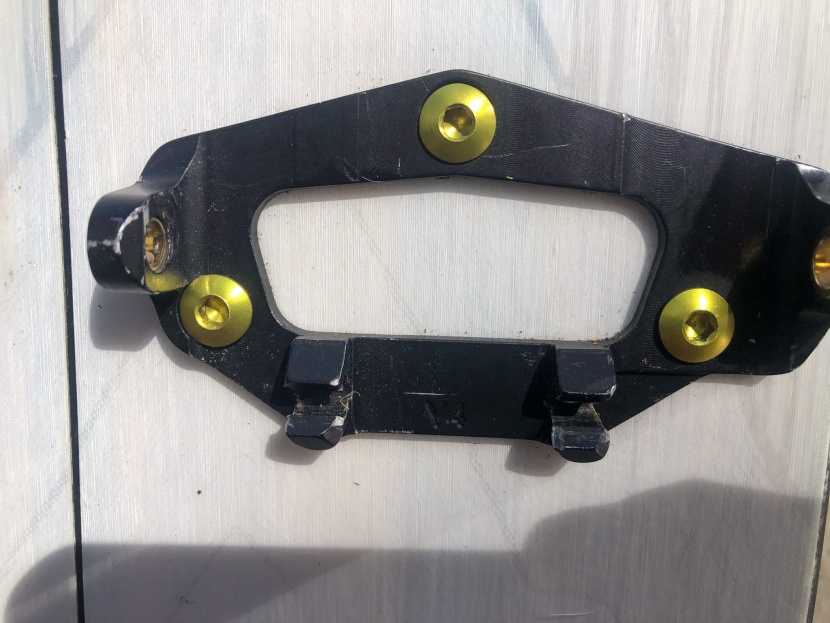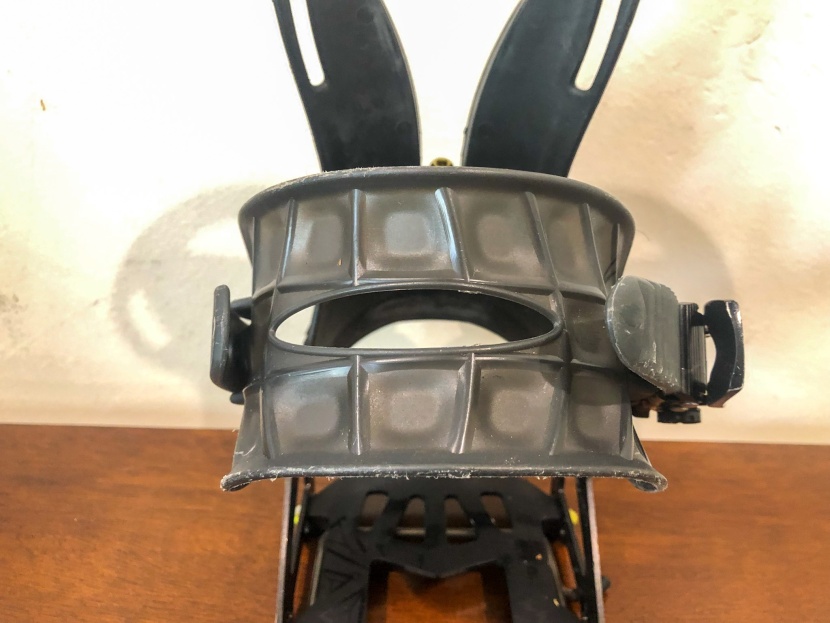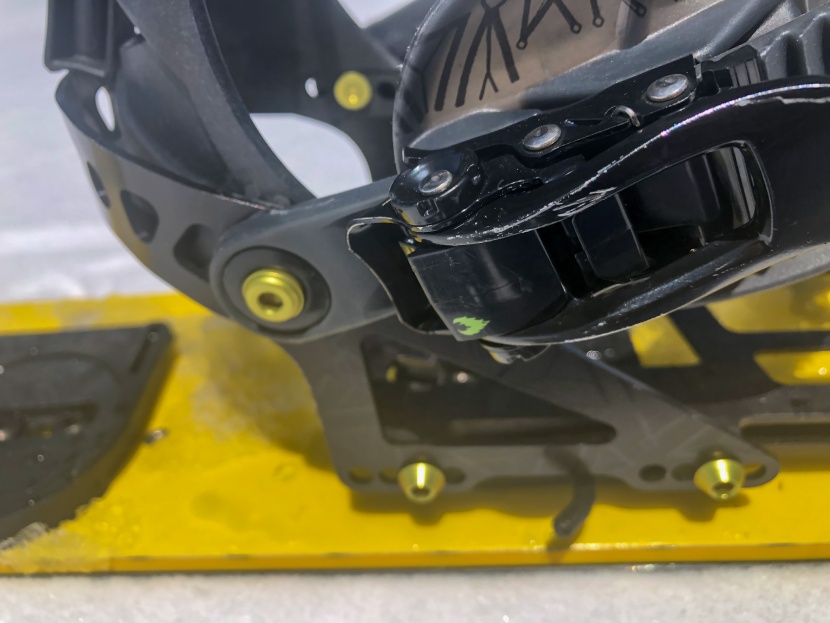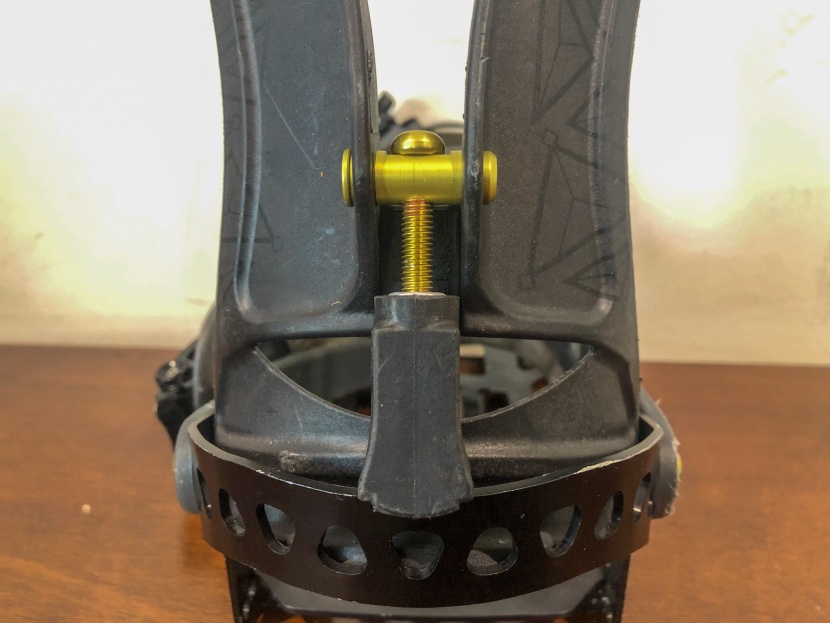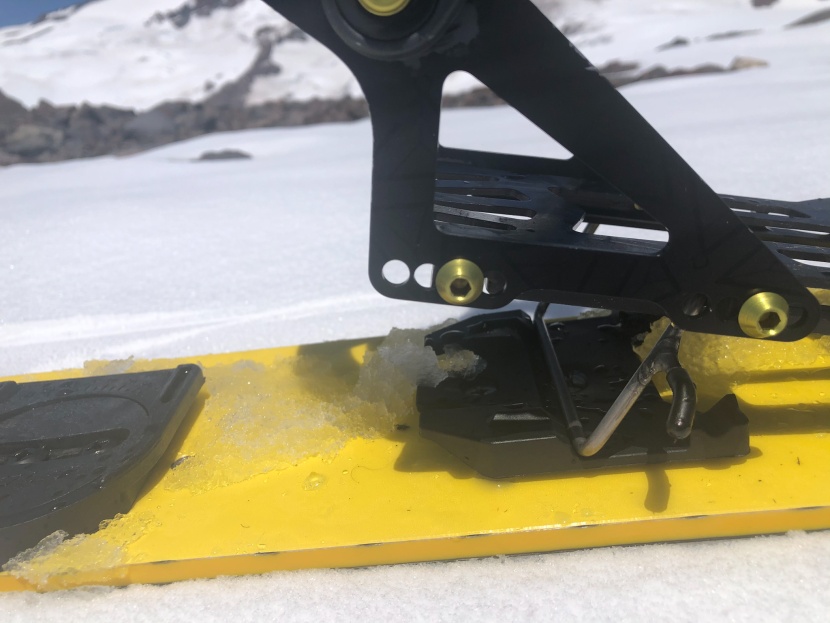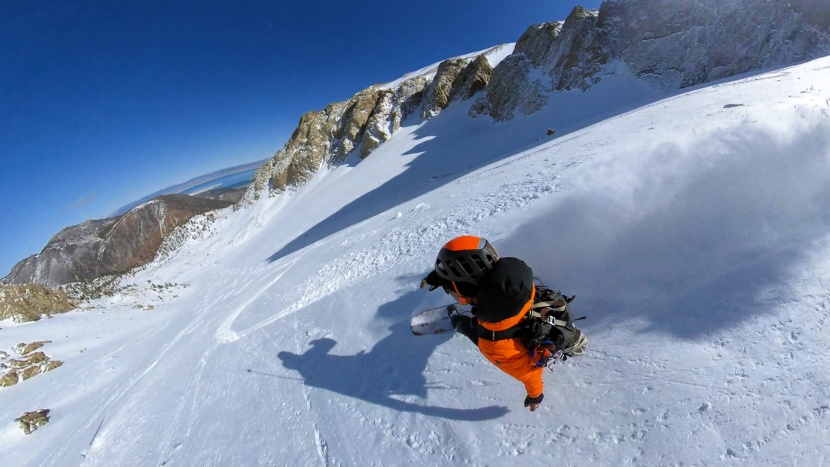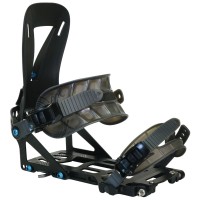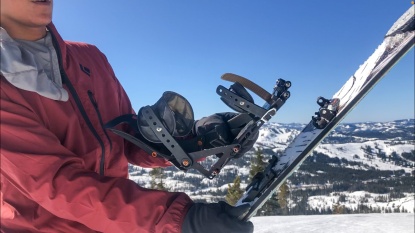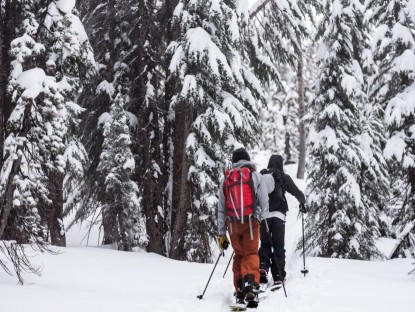
Our Verdict
Our Analysis and Test Results
Since our testing, Spark released the Arc ST Pro binding, which includes the new ST (Smooth Touring) technology. This is a change in manufacturing that utilizes injection molding, where aluminum or steel parts are “overmolded” with a proprietary thermoplastic blend with the goal of making the components even more cold tolerable and durable than before. Above, compare the two bindings; the Arc Pro we tested is shown on the left, and the Arc ST Pro is on the right. We're linking to the ST version in our review.
The Spark R&D Arc Pro is a standout splitboard binding because of its transitional interface, weight, and downhill performance. The Arc Pro is based on the same design as the Spark Arc but uses premium materials to reduce the weight. Spark even made custom aluminum hardware in-house to reduce the weight even further.
Downhill Performance
Ah, the reason we're out there: the downhill. The allure of fresh powder turns or smooth corn snow lies central to the motives of many backcountry riders. To help manifest that reality, a great set of snowboard bindings will offer a responsive and stable ride with a feel that fits the rider's desires. The Arc Pro thrived when going downhill and offered a great balance of surf and responsiveness.
This model offered plenty of response and quick turn initiation that was easy to control. It's a slight step up in stiffness from the Spark's Arc (due to a carbon-reinforced highback) but still maintains that surfer character to help slash the tail out or tweak a grab. The stiffer construction helps support your boot so you can drive forward using your knee like a joystick to deal with variable conditions. Light to average-weight riders will likely enjoy this model because it provides a nice balance of flex and response.
Transitions
Binding companies often differ quite distinctly in their transition systems and are a notable reason why a rider might prefer one brand over another. Transitions can sometimes be a frustrating process when the elements are not on your side. That means it's important that our gear works to make this potentially challenging time as easy as possible. The Spark T1 Tesla System is a fast, easy-to-use, and intuitive transition system that resists icing and other potholes that might complicate transitions.
Spark uses a passive system, meaning that there are minimal moving parts, and the board is held together by trapping the puck inside of the baseplate. The T1 transition is quite simple; lift the Snap Ramp, place the binding in the desired mode, and close the Snap Ramp. The passive system doesn't require any active parts or small components to handle; this makes it easier to use in all conditions.
We rarely had any issues with the Arc Pro icing over. The motion of sliding your binding onto the board will usually remove all the snow out of the way. The lack of moving parts reduces the opportunity for critical icing to occur as well. This model and the T1 system offer one of the best transition experiences in the industry. Whether it's your first time or you are transitioning on the summit of Denali, these will perform to help you be faster than before.
Uphill Performance
Backcountry skiers and riders spend a substantial amount of their time hiking uphill. Our favorite gear is specifically tuned to provide the best uphill experience possible. Uphill performance becomes increasingly important as objectives get more technical and remote. We evaluated performance in this metric based on comfort, sidehilling ability, and stride quality. The Arc Pro is one of our favorite bindings for great performance on the uphill.
The Spark R&D Arc Pro has a very low friction pivot point that moves easily and with very little drag. This makes each stride easier due to the reduced friction in the touring bracket. A well-designed negative lean system is essential to maintain good stride quality and user experience. This model has -13 degrees of lean to move the highback further away from the boot to increase the stride distance. -13 degrees is plenty and more than you can capitalize on with a standard soft boot. The Rip 'N' Flip Highback system is fast and straightforward. The only drawback we have found with this system is that it's challenging to get equal amounts of forward lean on each highback. If you rotate the forward lean adjusters, you need to be very intentional about counting the number of rotations to ensure they are even with each other.
We found the Arc Pro to be a comfortable model for full days of touring. The straps were free of pressure points, and our feet never experienced any premature fatigue. It doesn't have any EVA padding on the baseplate, which can help reduce foot fatigue and add some dampening properties. Most splitboard bindings, especially the most technical, will forgo this feature to reduce weight and rely on the padding and midsole structure of the boot for some added cushion and dampening properties. However, EVA padding is likely to increase the comfort of any binding, and Spark offers an aftermarket EVA pad for all of their bindings.
These bindings sidehill very well without the use of a very long or tall sidebar. We were able to obtain purchase in icy conditions due to its responsive and stiff nature.
Weight
Weight is directly correlated to uphill performance. Ounces and grams can matter on distant and challenging objectives. Weight becomes even more critical when it is placed on your feet rather than in a backpack. This is because you have to move the extra weight further and repeatedly use the same isolated muscle group. To accurately assess weight, we looked at both the weight per pair and also the total weight of the ride-ready setup.
The Arc Pro is one of the lightest bindings in both the per pair and ride-ready categories. A size medium weighs in at 1.25 lb per the binding and 3.4 lb for the ride-ready setup. Its light weight made it our first pick for snowboard mountaineering and tours with longer and flatter approaches.
Straps, Lean, and Risers
Straps, lean, and risers are a common place to improve the user-friendliness, efficiency, and weight of a splitboard binding. We evaluated this by using, learning, and investigating the material and design intentions of these experience-enhancing features.
Straps
The Straps on the Arc Pro are incredibly light and durable. The Pro series uses Pebax plastics in their straps, ladders, and adjustment to reduce weight by nearly 20%. The straps are comfortable for a full day of touring.
The ratchets are made by Burton and have proved to be very durable. One set of our Sparks bindings has over 100 days on it, and the buckles still operate very well.
Lean
The Rip 'N' Flip Highback is incredibly easy to use to switch between walk and ride modes. It is a simple toggle to switch between the modes, requiring one visually obvious move, so you are less likely to forget to switch between modes. Moving the toggle off of the heel cup will provide you with -13 degrees of lean to increase stride length. Placing the toggle on the heel cup provides vast forward lean options from 0 to 22 degrees. To select your forward lean angle, you need to rotate the base of the toggle. It can be difficult to get the same amount of lean on each binding because of its freeform approach and the vast number of nondescriptive settings.
Risers
The riser bars of these bindings offer two heights, a low 12 degree option, and a high 18 degrees setting for climbing steep terrain. The riser is attached to the underside of the base plate to reduce weight even further. These risers have a Whammy Bar on the side, so riders can easily engage the riser with their pole basket. However, it can be challenging to do with softer pole baskets, and we have damaged some in the process. Overall, we like these risers and find them generally easy to engage once you figure out the technique of “out and then down”.
Should You Buy the Spark R&D Arc Pro?
The Spark R&D Arc Pro is one of the best splitboard bindings on the market. Its easy transition system stands out whether your goals are casual laps or saving essential time when the conditions are sub-optimal. They find a great balance of surfy and responsive that provides control in lots of conditions. If you're looking for a lightweight, easy-to-use, and fun binding for your next objective, then look no further.
Splitboard bindings are simply expensive. The Arc Pro is a great value considering the premium materials used to reduce the weight of their classic binding. If you are a weight-conscious backcountry user whose objectives will benefit from the reduced weight then this is a great deal.
What Other Splitboard Bindings Should You Consider?
There's no getting around it: splitboard bindings are simply expensive.
If you're hoping to save some cash and weight is less of a priority, check out the Spark R&D Arc. For riding big technical faces with speed, we would choose the Spark R&D Surge Pro.
| Awards | Best Overall Splitboard Binding |
|---|---|
| Price | $620 List Check Evo (on sale!) |
Overall Score  |
|
| Star Rating | |
| Bottom Line | If we had to pick one binding over any other, this would be the one |
| Pros | Lightweight, easy to use, easy transitions, resistant to icing |
| Cons | Hardware requires tightening, hard to accurately adjust forward lean, heel riser can be challenging to deploy |
| Rating Categories | Spark R&D Arc Pro |
| Downhill Performance (30%) | |
| Transitions (30%) | |
| Uphill Performance (20%) | |
| Weight (10%) | |
| Straps, Lean, Risers (10%) | |
| Specifications | Spark R&D Arc Pro |
| Measured Weight (pair) | 2.5 lbs |
| Compatible Systems | Spark Pucks, Voile Pucks (Regular or Canted), Burton Channel Pucks, One Binding System, and Ibex Crampons |


